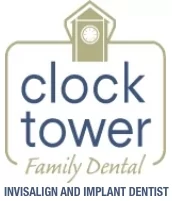
Have you been experiencing gum pain or irritation? Plaque and tartar can not only give you a cavity, but they also irritate your gums and actively wear down your mouth’s natural defenses which can lead to gum disease. Swollen, painful, or bleeding gums could be signs of gum disease, a painful condition that can lead to tooth loss.
What Causes Gum Disease/Periodontal Disease?
Gum disease is caused by the accumulation of plaque and tartar along the gum line. Plaque and tartar buildup when a person has poor brushing and flossing habits. Some individuals may be at a higher risk for gum disease with the following conditions:
- Obesity.
- Tobacco usage.
- Pregnancy/menopause.
- Vitamin deficiencies.
- Autoimmune disorders.
- Cancer treatments.
Dangers of Not Treating Gum Disease
Untreated gum disease/periodontal disease can lead to tooth loss and serious, life-threatening complications. Tooth/gum infections can spread beyond the jaw and into the bloodstream, which can then affect the heart or even the brain. Periodontitis is also linked with respiratory disease and even coronary artery disease.
Why Do I Have Such Bad Breath?
Poor dental hygiene habits allow for a buildup of plaque, which is the remnants of our meals throughout the day. Within 24-48 hours, this plaque then hardens into tartar which is much more difficult to remove, and in most cases has to be removed by a dental professional. Bad breath is a common symptom of gum disease and is the most benign of the complications involved with gingivitis.
Treatments Available at Our Dental Office
With the use of advanced technology, Clocktower Family Dental offers more accurate, quicker treatment plans that are effective and affordable. The most important part of treating periodontal/gum disease is to remove the plaque and tartar buildup, allowing your teeth and gums to heal.
Scaling and Root Planing
This two-step procedure is a deep cleaning process that removes harmful bacteria and debris from your teeth and gums. Most individuals can be treated in just one visit, more severe cases may need two appointments for full treatment. Our dentist will also smooth root surfaces to keep bacteria, plaque, and tartar from re-adhering to the surface.
Step 1: Scaling
First, you may need a local anesthetic, especially if you’re experiencing gum recession. Then, we will begin to remove the buildup of plaque and tartar around your teeth and gums. This includes those hard-to-reach spots, such as between teeth or around dental devices such as permanent retainers.
Step 2: Root Planing
This step involves our dentist smoothing the root of the tooth or teeth. Bacteria and plaque/tartar will have a much harder time adhering to the surface again, preventing future irritation and infections from taking hold. Depending on the severity of the disease, our dentist may also apply an antimicrobial agent, or prescribe antibiotics to help the healing process.

Laser-Assisted New Attachment Procedure (TLPT)
This method of removing harmful debris from your teeth and gums is gentler than traditional methods. TLPT has also been shown to increase the rate at which gums heal and reattach to the teeth. You’ll have a faster recovery with less of a risk for infection, sensitivity, and bleeding after the procedure.
Laser-Assisted Periodontal Therapy (LAPT)
Laser-assisted periodontal therapy, or LAPT, for short, is the latest advancement in periodontal infection removal. The laser uses a specific wavelength to target and destroy infected tissue and bacteria, allowing our dentists to accurately treat the infected area. This allows you a faster recovery time with less discomfort.
At-Home Gum Care
The best method for protecting you and your family is to adopt healthy hygiene habits. Here are just a few ways you can protect yourself from more in-depth procedures, saving you money and any future discomfort.
- Brush your teeth twice daily, morning and night.
- Consider using an electric toothbrush.
- Use soft, or extra-soft toothbrush bristles.
- Replace your toothbrush every 3 months.
- Floss daily, including after meals.
- Use an antimicrobial mouthwash.
And lastly, make sure you visit us every 6 months for a cleaning. Only when home care is paired with professional cleanings can your teeth achieve their ultimate health.
Get Excellent Periodontal Care at Clocktower Family Dental!
Our family-friendly office welcomes many Castle Rock families into our practice, and we’d love to meet yours! To schedule an appointment, or if you have any further questions, give us a call today!

